Why Your Website Isn’t Showing Up On Google Search
So your website isn’t showing up when you search for it. You’ve searched everything you can think of including relevant keywords, your url, and keywords with your url all in an unsuccessful attempt to display a search result of your website. I’m often asked, “Why is my website not showing up on Google?” There are multiple elements that factor into how well search engines index your website. Here are the 3 common reasons your website is not showing up on Google search results:
Download The SEO Solution: A Complete SEO Checklist for Beginners
Google hasn’t found or is unable to find your website.
Sometimes your website is blocking the search engine robot crawler from finding and indexing your website. If your website was recently launched, or worked on by developers, they might have added a robots.txt file to your site. This file could have code in it that is instructing website crawlers to not crawl or index your website. You can confirm with your website developer or schedule a quick chat with a search engine expert to see if that is the cause.
Another reason your website may not be showing up on Google is because not enough time has past for the pages to be indexed. Sometimes website crawlers can take weeks to stumble upon and then index your website. Most search engines have a “submit your url” page to help nudge the process along. Here is Google’s “Submit your URL” page.
Your website isn’t optimized for the search terms you are testing
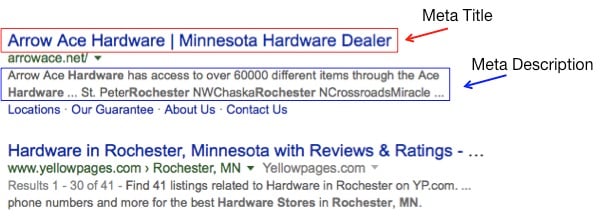
Within your website’s code structure are meta title tags and meta description tags. These should include your targeted keywords whenever possible. If your meta title and description tags don’t include keywords you can focus your efforts there first. Remember, search engine crawlers are able to detect spam keyword stuffing. Your meta title and description tags should have the user in mind and provide a well written description of the page.
Example of meta description with user friendly content:
“CWS is a web development and marketing agency focused on improving your business marketing ROI. Custom applications, inbound marketing, and digital marketing expertise, along with our growth-driven design process delivers business growth for our clients.”
Example of a meta description with keyword stuffing:
“CWS is web development company that does web development services for anyone who needs web development. Contact us for web development services and our web development team will get you more information on web development.”
Optimization of your website goes beyond your website’s meta tags. Your website content should also have targeted keywords sprinkled across it. Targeting 2-4 keywords per page is most common best practice. Your content also needs to be optimized for mobile devices. Mobile search results now favor mobile friendly websites over non mobile friendly websites. Sometimes the easiest answer to why your website is not showing up on Google is that it is not mobile friendly. Here is a link to check if your website is mobile friendly.
Your website doesn’t have enough quality content
Google’s search engine updates continue to provide steam to the “content is king” thinking. It’s not enough to only have a homepage, about us and contact page and expect to have an impact on the 1st page of Google Search. The more your website can include quality content, the better your website will rank. Google assigns pagerank to every quality page it crawls. Content created to specifically target long tail keywords is one strategy used to achieve high page rankings for very specific searches.
When optimizing your website for search, remember, there’s no silver bullet to ranking well on Google search results. When asked, “Why is my website not showing up on Google?”, I recommend focusing on the visitor experience and providing quality content that is optimized for mobile and your targeted keywords. Google and other search engines will handle the rest. Experimenting and continually improving your website will help you learn what works best for your business online and provide opportunity for sustainable growth.

.jpg?t=1533315998368) How-To Articles
How-To Articles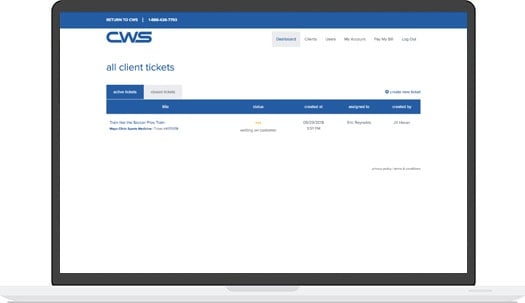 Support Portal
Support Portal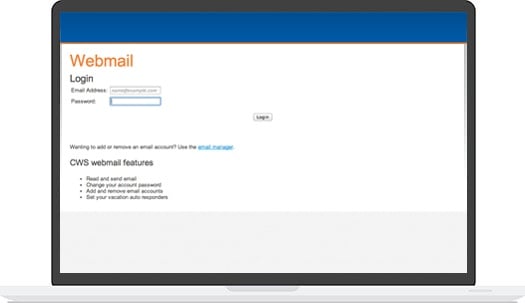 Webmail
Webmail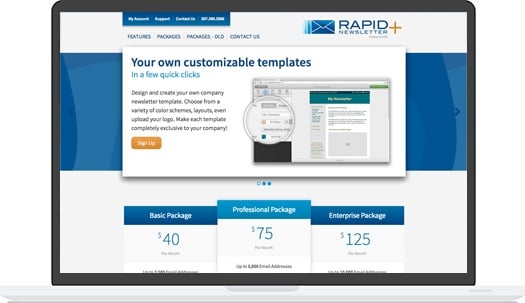 Rapid Newsletter+
Rapid Newsletter+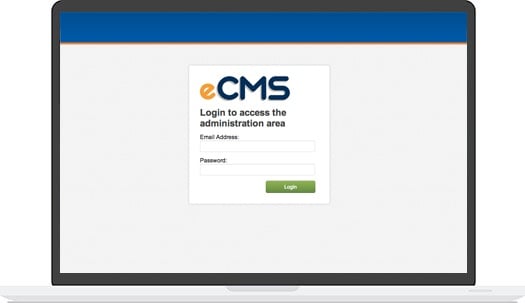 eCMS
eCMS

 PJ Calkins is a Solution Engineer. He is an expert at identifying client needs, marketing strategies and budgets. PJ has managed over 4.5 million dollars in PPC advertising and analyzed almost 1 million unique website visitors across dozens of websites & industries. Because of his lengthy experience running a small business, he also has tons of experience in problem solving and creative brainstorming.
PJ Calkins is a Solution Engineer. He is an expert at identifying client needs, marketing strategies and budgets. PJ has managed over 4.5 million dollars in PPC advertising and analyzed almost 1 million unique website visitors across dozens of websites & industries. Because of his lengthy experience running a small business, he also has tons of experience in problem solving and creative brainstorming.
